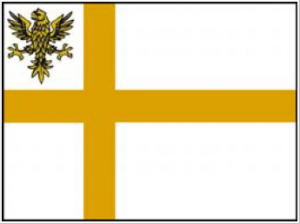Time: Framland
Time Overview
Framland was originally a semi‐independent duchy within the Skolkan Empire. It declared its independence in 1905 along with Norway. Since that time, Torrike and Bothnia have routinely attempted to influence Framish politics, but its independence has never been physically threatened. Even after heavy pressure, Framland was able to remain neutral during both WWI and WWII. During the Cold War, Framland leaned westward but maintained both political and economic relations with Donovia.
Due to its neutrality during both world wars, Framland avoided much physical destruction like several other neutral countries. The post‐war boom propelled Framland to greater economic prosperity, putting the country in third place in per capita GDP rankings by 1970. Beginning in the 1970s and culminating with the deep recession of the early 1990s, Framish standards of living developed less favorably than many other industrialized countries. Since the mid-1990s the economic performance has improved. Since the fall of the Warsaw Pact, its political stance has become decidedly pro‐Western and pro‐NATO, but has declined to apply for NATO membership. However, to counter the threat of reintegration into a Torrike-led empire and assist in maintaining their independence, Framland routinely plays a possible NATO membership to keep Torrike in check.
Framland has always been a nation that is moderately prosperous, democratic, and possessing a strong sense of national identity. The Framish people clearly consider themselves Europeans, but are hesitant to become a member of the European Union, seeing it as compromising their national identity. Framland maintains good relations with the rest of the European nations.
Key Dates, Time Periods, or Events
- 1689 – Roman Catholicism introduced by the Bishop of Skolkan.
- 1905 – Framland gains independence.
- 1917 – Civil war within the Skolkan Empire.
- 1920 – Skolkan Empire formally dissolved. Arnland, OtsoBothnia, and Torrike formed as separate countries.
- 1921 – Women’s suffrage adopted
- 1950 – Civil Defense set up
- 1990 – Gulf of Bothnia Cooperation Council (GBCC) founded by Bothnia and Torrike. Framland becomes a signatory.
- 1995 – Framish Police Directorate established
- 1997 - GBCC members sign an economic cooperation framework.
- 2005 - GBCC Interbank established
Routine, Cyclical Key Dates
National and Religious Holidays
Framland observes all Christian holidays, New Year’s Eve, and New Year’s Day. National holidays and observances include the following:
- May 01 – May Day
- Second Sunday in May – Mother’s Day
- Day before Summer Solstice – Midsummer Eve
- Summer Solstice – Midsummer Day
- Second Sunday of November – Father’s Day
Harvest Cycles and Seasons
The growing season lasts 140 days in the south and 100 days in the north.
| Season | Months |
| Winter | December to February |
| Spring | March to May |
| Summer | June to August |
| Fall | September to October/November |
See Physical Environment Variable for more information.
Elections
Framish elections are held every second year, alternating between elections for the Parliament and local elections, both of which are held on a 4‐yearly basis. More detail can be found in the Political Variable.
Public Education
Children are not obliged to attend school until the age of six.
Primary school: Eight year program consisting of two kindergarten years (Junior and Senior Infants), followed by classes 1‐6.
Secondary school: Comprises secondary, vocational, community and comprehensive schools.
Tertiary Education: Encompasses the university sector, the technological sector, and private, independent colleges.
More details are in the Social Variable.
Time Zone
Framland has only one time zone. The country observes Central European Time (CET), or UTC +1, as standard time. When Daylight Saving Time (DST) is in force, Framish clocks run on Central European Summer Time (CEST).

